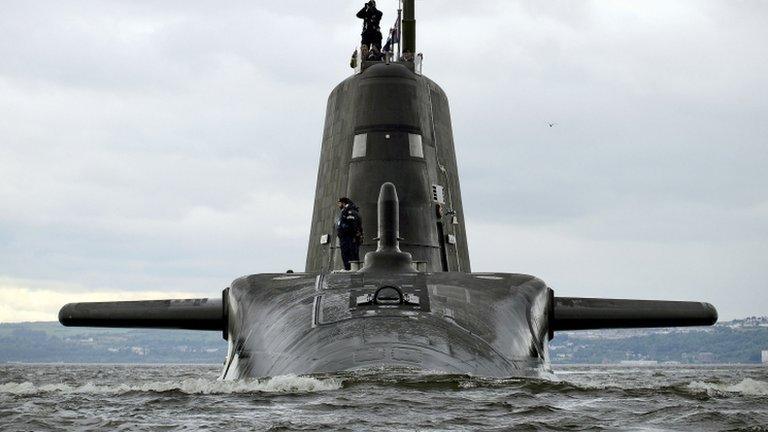MoD records 789 nuclear safety events at Scotland's bases
- Published
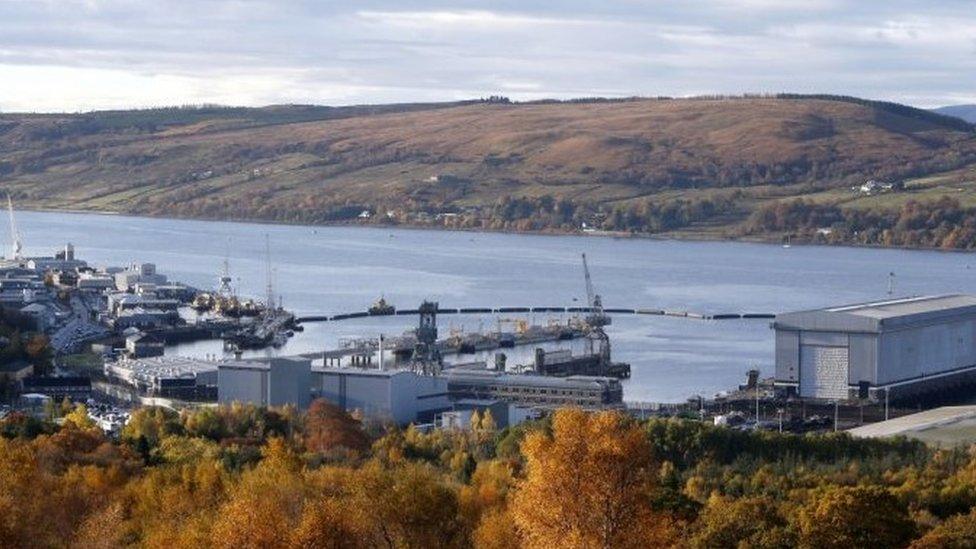
The Faslane base is home to the UK's fleet of Trident nuclear submarines
Nearly 800 nuclear safety events have been recorded at Scotland's naval bases since 2006, the Ministry of Defence (MoD) has confirmed.
Defence Minister Stuart Andrew revealed the figures in letters to an SNP MP.
A total of 789 nuclear safety events were recorded at HM Naval Base Clyde at Faslane and nearby Royal Naval Armaments Depot Coulport.
Faslane, near Helensburgh in Argyll and Bute, is home to the bulk of the UK's nuclear submarine fleet.
Edinburgh MP Deirdre Brock obtained the information from the MoD by asking parliamentary questions.
Last year the MoD disclosed 505 incidents had taken place at Faslane.
Now, a further letter reveals 284 incidents took place at Coulport, where the nuclear warheads are stored and loaded onto the submarines, in the same period.
Category A incident
In the letter, Mr Andrew said the bulk of the incidents were "low level" and there was no harm to staff or the public.
He said: "I would wish to reiterate that the identification and reporting of these low-level events and near misses is actively encouraged in line with International Atomic Energy Agency guidance for protecting people and the environment... since such data can provide valuable lessons to help avoid more significant events."
A more serious category A incident took place in 2008 when water overflowed from a now-decommissioned primary effluent barge.
Category A events have "actual or high potential for radioactive release to the environment of quantities in excess of IRR99 notification limits".
Subsequent sampling indicated low levels of tritium and "barely detectable levels" of cobalt.
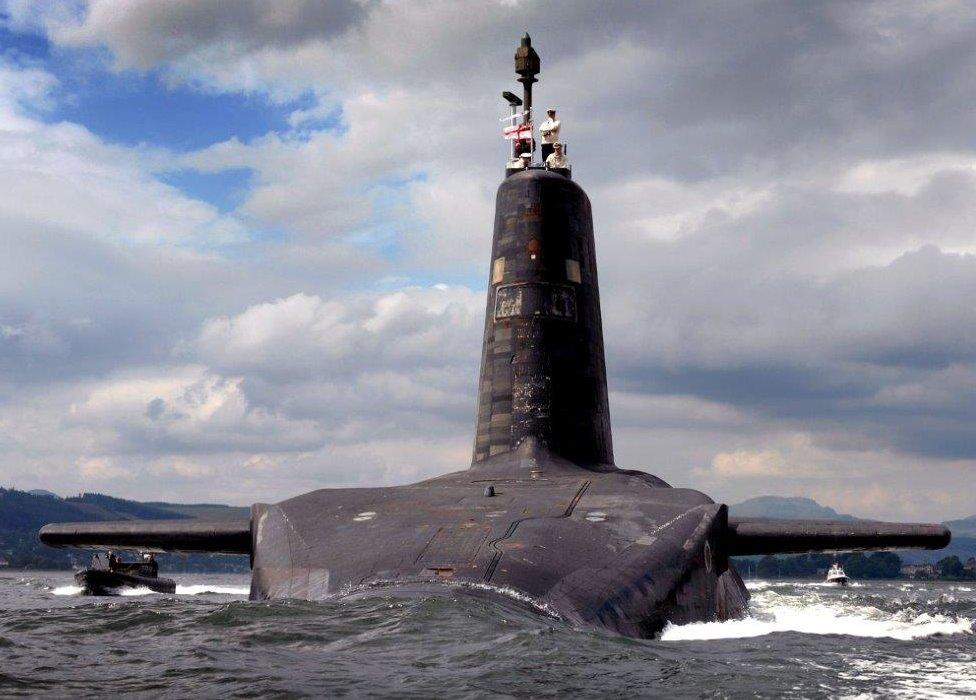
HMS Vanguard is part of the fleet based at Faslane
The incident was reported to the Defence Nuclear Safety Regulator and the Scottish Environment Protection Agency.
The MoD said the assessed release to the Gare Loch was less than 0.0001% of the base's approved annual discharge levels.
Previously, the MoD has listed two category A incidents at Faslane, from 2006 and 2007.
However, the minister said that in "neither event was any radiological contamination evident".
He continued: "None of the events caused harm to the health of any member of staff on the naval base, or to any member of the public."
'Shocking record'
Mr Andrew said that the MoD takes all incidents, no matter how minor, "extremely seriously" and that they are investigated with appropriate measures put in place.
In response to parliamentary questions from Ms Brock, the MoD also disclosed there have been 22 fires on its nuclear-armed or nuclear-powered submarines since June 2015.
Ms Brock said: "It's a shocking record of accidents and incidents in places where the most dangerous weapons on the planet are.
"We already knew that there were 505 nuclear safety events on board submarines while they were berthed at Faslane and now we find that there have been another 284 in other locations at Faslane and at Coulport where weapons are handled."
She added: "One bad accident would be enough to wipe Scotland out and the safety record is appalling.
"Even the risks from the nuclear reactors on board submarines is too high - as the spillage from the effluent barge shows."
- Published18 November 2018
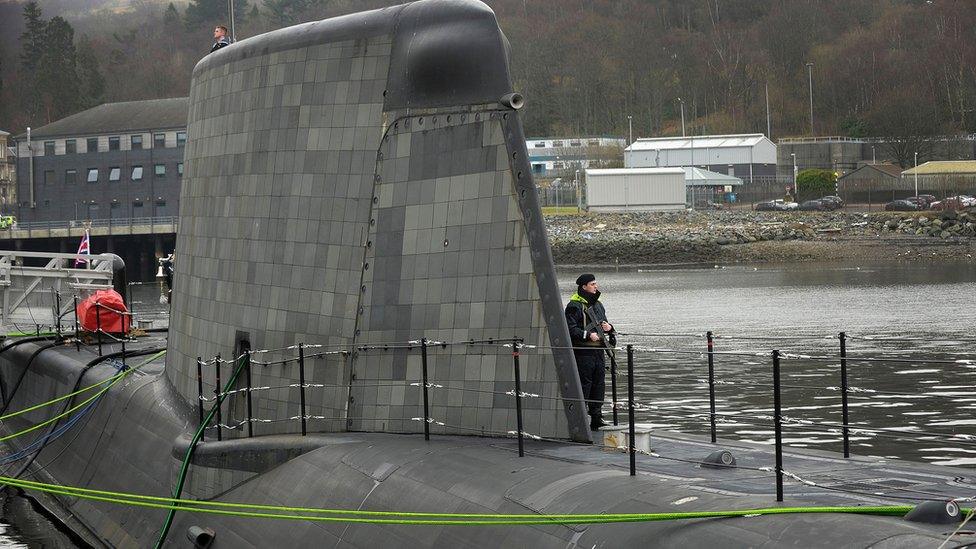
- Published10 May 2018
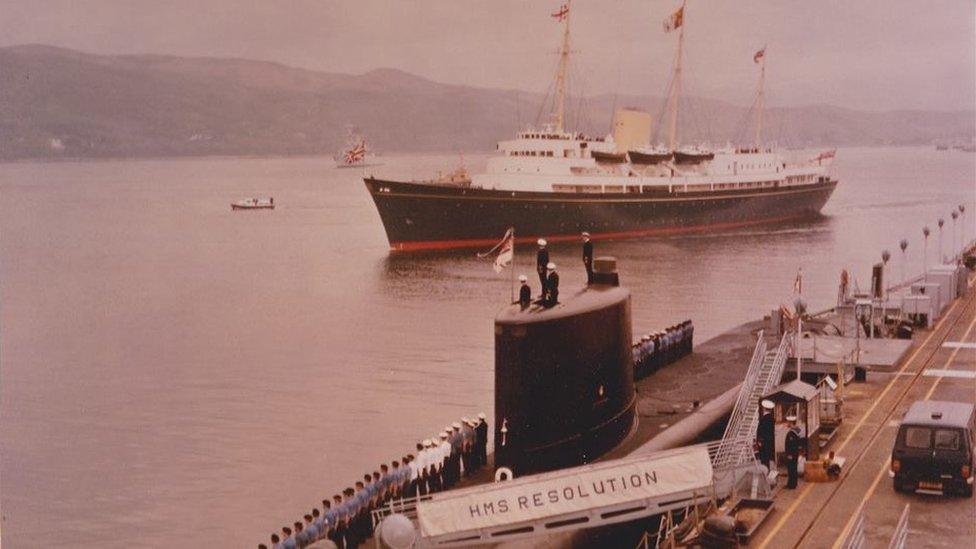
- Published31 August 2015
